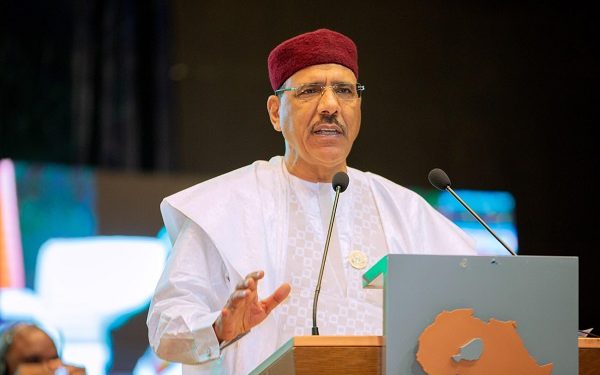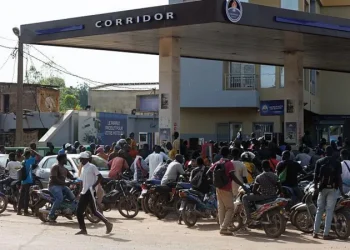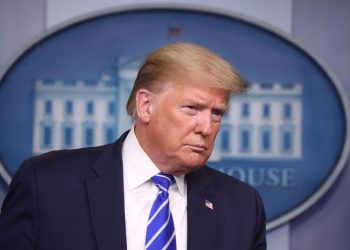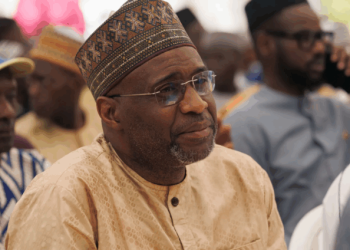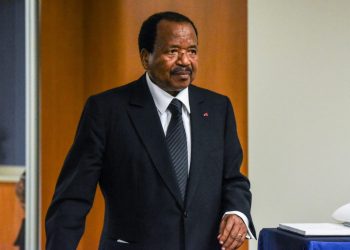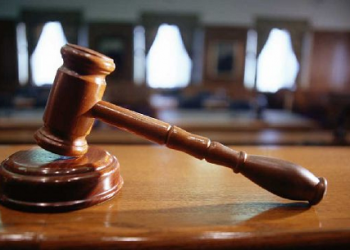Niger’s military says it will prosecute deposed President Mohamed Bazoum for treason, hours after a group of senior Islamic scholars said the country’s coup leaders are open to diplomacy to resolve their standoff with West Africa’s regional bloc.
In a statement read out on national television late on Sunday, a spokesman for Niger’s military laid out the charges against Bazoum as “high treason and undermining the internal and external security” of the country.
Bazoum, 63, and his family have been held at the president’s official residence in Niamey since the coup on July 26, with international concern mounting over their conditions in detention.
The Economic Community of West African States (ECOWAS) has called for Bazoum’s reinstatement, imposing severe economic sanctions on Niger and threatening military intervention if civilian rule is not restored.
Still, the West African bloc, which has approved the deployment of a “standby force to restore constitutional order” in Niger, has said it remains committed to finding a diplomatic solution to the crisis.
The spokesman for Niger’s military, Colonel Major Amadou Abdramane, in his statement on Sunday, dismissed concerns over Bazoum’s health, saying the deposed leader had seen his doctor the previous day.
“After this visit, the doctor raised no problems regarding the state of health of the deposed president and members of his family,” he said.
Abdramane went on to slam ECOWAS sanctions on Niger, saying the “illegal, inhumane and humiliating” measures were making it difficult for people to access medicines, food and electricity.
The statement came just hours after a group of Nigerian Islamic scholars announced a meeting with Niger’s coup leader Abdourahamane Tchiani in Niamey and said the general had agreed to hold “direct talks” with ECOWAS.
Sheikh Abdullahi Bala Lau, who led the Nigerian delegation, told Al Jazeera their mission to Niamey was aimed at creating an “avenue whereby the leaders of the junta coup in Niger will have a dialogue with the ECOWAS leaders to understand each other”.
During their meeting, Tchiani “accepted to have fully direct discussions with the leaders of ECOWAS”, he said.
The Muslim scholars visited Niamey with the blessing of Nigerian President Bola Tinubu, who also heads ECOWAS. Tinubu has adopted a firm stance against the coup, the sixth to hit an ECOWAS member state since 2020.
The bloc has severed financial transactions and electricity supplies as well as closed borders with landlocked Niger, blocking much-needed imports to one of the world’s poorest countries.
Al Jazeera’s Ahmed Idris, reporting from Katsina on Nigeria’s border with Niger, said the charges against Bazoum were likely to “increase tensions between the military in Niger and the international community”.
“This statement is an indication the military isn’t about to let Bazoum go. The charges they’ve announced could result in very serious repercussions for Bazoum,” Idris said.
“This could be an attempt by the military to further strengthen their hand in future negotiations,” he added.
The prospect of a military intervention to reinstate Bazoum has divided ECOWAS members and drawn warnings from foreign powers including Russia and Algeria.
Niger’s neighbours Mali and Burkina Faso, also ruled by military governments which seized power in coups, have said intervention would be tantamount to a declaration of war on them.
On Saturday, Tchiani sent a delegation, led by his defence chief General Moussa Salaou Barmou, to the Guinean capital, Conakry, to thank leaders there for their support – a sign of the coup leaders’ desire to affirm alliances as they stand up to regional and other powers.
“We are Pan-African. When our people have problems, we are always present and we will always be there,” Guinea’s interim President Mamady Doumbouya said at the meeting, according to a video shared late on Saturday night by the presidency.
The coup in Niger is seen as a major blow to many Western nations, which viewed Niamey as a partner in the Sahel region that they could work with to beat back a growing uprising by groups linked to al-Qaeda and ISIL (ISIS).
The United States and France have more than 2,500 military personnel in the region and, with other European countries, have invested hundreds of millions of dollars in military assistance and training of Niger’s forces.
source: Aljazeera





































